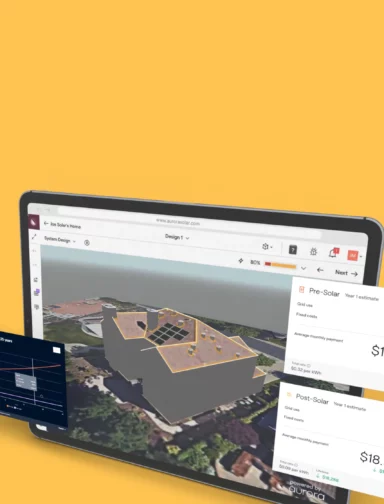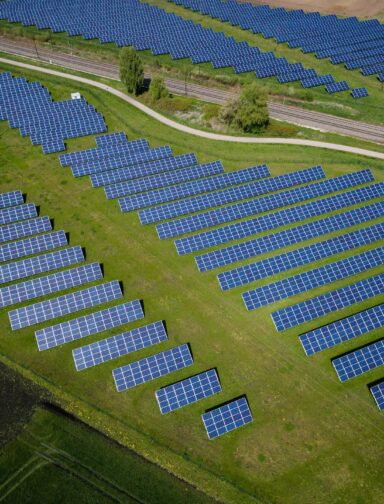Even as solar hardware costs trend downwards, other installation-related expenses continue to increase. These include soft costs, permitting approvals, and installation delays, all of which can significantly impact solar’s affordability — making solar less appealing for homeowners.
One strategy that can help solve these problems is adopting smart workflows.
By streamlining operations, automating tasks, and enhancing team communication, smart workflows can help solar companies mitigate rising soft costs and eliminate operational inefficiencies.
Using automation and intelligent workflows was the topic of our recent webinar with Scoop Solar, Solar Masters: How to Empower Your Teams with Smart Workflows. In this blog we’ll look at some of the biggest inefficiencies plaguing solar today, and touch on how smart workflows can help.

The issues, in depth
As we mentioned above, the solar industry is grappling with three interconnected problems: soft costs, permitting issues, and installation delays.
- Soft costs encompass a range of expenses, including customer acquisition, installation labor, and the administrative costs of permitting. Aurora’s Nieku Barkhordarian points out, “65% of the total system’s costs are due to soft costs.” These expenses are growing over time, making it increasingly important to find ways to streamline operations and reduce expenses.
- Permitting issues are a significant component of these soft costs. The process of obtaining permits for solar installations can be complex and time-consuming, often varying from one jurisdiction to another. This not only adds to the soft costs, but can also lead to delays in the installation process.
- PV installation delays can result from a variety of factors, including permitting issues and equipment supply chain disruptions. These delays can lead to increased cancellation rates and customer dissatisfaction. “What we see in the field is every one week delay in our installation process correlates to a 5 to 10% increase in cancellation rates from homeowners,” observes Barkhordarian.
A deeper understanding of these interconnected challenges shows the transformative potential of smart workflows in the solar industry.
Tackling soft costs with smart workflows
Since soft costs make up such a large portion of the total project cost, anything we can do to bring them down will have a large effect on the bottom line. Enter smart workflows.
A smart workflow is a process that automates tasks, improves communication, and streamlines operations. By implementing smart workflows, solar companies can reduce labor costs, improve marketing efficiency, and speed up the permitting process.
For example, you could develop a smart workflow to automate the process of generating and sending quotes to customers, saving time and reducing labor costs. You could also streamline the permitting process by automatically generating permit-ready documents, reducing administrative costs.
That’s just the beginning, of course, here are some more resources to help you get started:
- Automations deep dive: Streamline your operations with automated workflows
- Complex solar workflows? APIs can help
- Scale your organization seamlessly with APIs
- 14x revenue growth in solar? Start by automating your workflows
Streamlining permitting
Permitting is a significant hurdle in the solar installation process. The process of obtaining permits for solar installations can be complex and time-consuming, often varying from one jurisdiction to another. As Barkhordarian notes, “$7,000 of an average system’s cost is due to permitting inspections and fees.” This not only adds to soft costs, but it can also lead to expensive delays in the installation process.
Solar permitting is intricate due to its multi-step nature and the need for many documents, including site plans, system specifications, and safety details. Mistakes or missing information can result in delays and increased expenses.
This is where the power of smart workflows and automation comes into play.
Using a smart workflow for the permitting process, you could automate the generation of permit-ready documents, ensuring that all necessary information is included and formatted correctly. This can significantly reduce the time spent on preparing and submitting these documents. Automation can also help reduce the likelihood of errors.
Aurora can help. Our Plan Sets service streamlines this complex process, and lets you request permit-ready plan sets quickly and easily. Check out our Plan Sets FAQ to learn more.
Reducing delays and enhancing customer satisfaction
In addition to reducing ROI, unexpected solar installation delays can also lead to cold feet, causing customers to change their minds and explore other options (with other installers). Any number of variables can trigger these delays, such as permitting issues, equipment supply chain disruptions, and communication breakdowns between teams.
As you may have guessed by now, smart workflows can play a crucial role in reducing these delays.
For example, smart workflows can automate processes like equipment ordering, ensuring timely placement of orders and availability of necessary components. This automation facilitates smooth project progression by eliminating potential bottlenecks and inefficiencies.
Underpinning all these solutions is the power of real-time, collaborative communication. True automation is not just about synchronizing individual tasks or components, but about keeping entire teams aligned and informed. This is where the integration of Aurora with platforms like Scoop Solar comes into play, enabling seamless communication and collaboration across teams. As Tyrell Mara, VP of Operations & Growth at Scoop Solar, emphasizes:
“Automation is not about replacing human labor, but about augmenting it. By automating repetitive and mundane tasks, we can free up our team to focus on more strategic and value-adding activities.”
This integration ensures that everyone — from sales and design to installation teams — is on the same page, reducing delays and enhancing customer satisfaction. It’s about creating a cohesive, efficient, and responsive workflow that not only improves operational efficiency but also elevates the customer experience.
Next steps
For more in-depth information and practical strategies to harness the power of smart workflows for your teams, watch the full webinar on demand: Solar Masters: How to Empower Your Teams with Smart Workflows.

If you have any questions that weren’t answered in the webinar, or would just like additional information or suggestions, schedule a personalized demo — or get the info right now by clicking the chat box at the lower right of the screen.
Featured image by carlos aranda.


